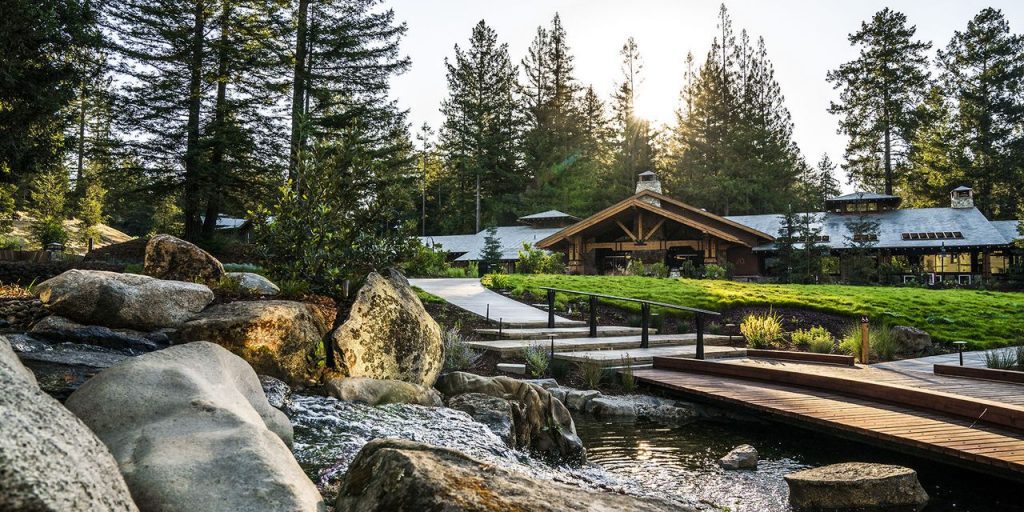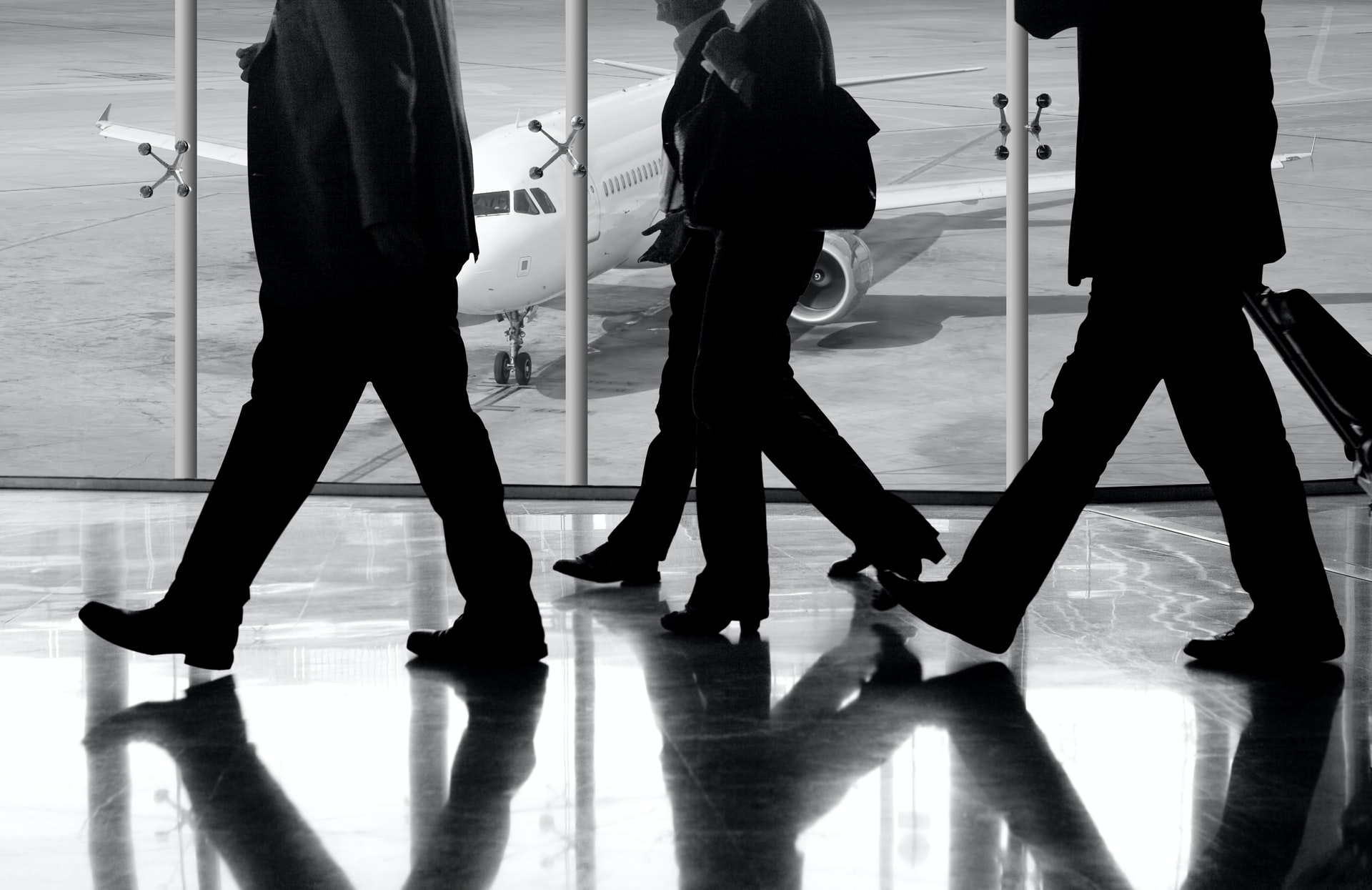In order to connect with and support new business travelers, it’s essential that your organization understands their values and concerns. Health risks, logistical challenges, and environmental concerns are all shaping the when and how of the future of travel. As business travel recovers, it must do so safely and sustainably.
And as the remote workforce continues to grow, the very concept of business travel will also continue to evolve. Over the last several years, many employees have realized that client engagement is fully manageable virtually. Any work trips, then, may no longer be for meetings and events, but to discover destinations while working from that locale.
Here’s a look at current developments within the corporate travel sector.
Understanding the needs of business travelers
To help paint a picture of the current travel landscape, a quick snapshot of Deloitte’s May State of the Consumer Tracker. These findings reflect consumers in the US and UK across all 18+ age demographics:
- Only about half (52%) of US respondents say they currently feel safe flying, and UK respondents landed at 55%
- 66% of US consumers feel safe in a hotel, along with 72% of respondents from the UK
- 58% of US consumers and 62% of UK consumers say they feel safe attending in-person events
With new COVID variants emerging and destinations across the globe seeing summer surges, the thought of traveling for work – especially internationally – is daunting for many. And as business trips tend to incorporate flights, hotel stays, and events, the risks are amplified.
Organizations should anticipate that while some colleagues may be onboard with business travel, many employees will not yet feel ready to travel long distances or engage with large-scale events like conferences and trade shows. Along with vigilant health and safety measures, consider how you can engage your team’s concerns – for example, with virtual and hybrid experiences.
The Austria Center Vienna is one venue offering a full suite of solutions for hybrid events. The venue offers their Hybrid Circle, Hybrid Cube, and Hybrid Sphere – distinct spaces optimized with tech to fully engage their remote audiences. The Austria Center Vienna also offers clients the opportunity to plan certified Green Meetings, which will increasingly be of great value to organizations booking corporate events.
Aligning new business travel with sustainability commitments
As industries across the board build out their roadmap to new business travel, sustainability will drive decision making. For some organizations, this may look like booking more eco-friendly transportation and accommodations. For others, business travel may be greatly reduced in the coming years in order to decrease carbon emissions.
For example, Microsoft is in the midst of a massive overhaul to their business travel structure. The company announced this spring that their business travel fee will increase from $15 per mtCO2e (metric tons of carbon dioxide equivalent) to $100 this summer. This ambitious move is set to help keep Microsoft on track with their 2030 goal of becoming a carbon negative, water positive, zero waste company.
A recent study from SAP Concur also offers valuable insights. The study surveyed corporate managers from a number of countries within the APAC region. A few key findings:
- 86% of respondents say their companies are actively considering sustainability when addressing business travel
- 76% would shift from air to train transportation for at least part of their travels, when possible
- 65% of those surveyed said they are currently reimbursing team members for the costs of EV charging
To safeguard both public health and the environment, many organizations are streamlining their business travel bookings and actively seeking ways to shift to more mindful modes of travel. This may look like increased EV bookings, scheduling outdoor versus indoor retreats, or gathering smaller and more localized teams as opposed to large-scale international events.
Business travelers will be traveling differently
Let’s explore further the shifting dynamics of new business travel. As we mentioned in our post about bleisure travel, this combination of business and leisure is expected to see continuous growth. A bleisure trip may look like an individual booking a few days to explore the outdoors after a conference, or an employee working from a beautiful destination for a week.
Just as travelers are increasingly seeking authentic and memorable experiences, so too are business travelers seeking to incorporate inspired itineraries beyond the board room. And from coworking spaces to more work-friendly suites, many organizations in the hospitality industry are honing in on this mode of travel and reimagining their spaces.
When it comes to company retreats, some are taking this idea to a whole new level. Earlier this year, Salesforce announced the launch of Trailblazer Ranch. This beautiful retreat, located on 75 acres of redwood forest in California, will serve as a hub for employee trainings and meets throughout the year. Team members can spend their days immersed in nature, with access to guided nature walks, locally-sourced meals, and cooking classes.

Done right, a team retreat can boost morale, creativity, and productivity. The Trailblazer Ranch is a great example of combining training and development with a sense of wonder and fun. Organizations that curate nourishing, experiential retreats can engage their employees in a way that brings great value to their team.
Connecting with bleisure and business travelers
The future of business travel is one that’s challenging to forecast, and this realm of the industry is expected to recover much more slowly than others. As it does return, a focus on health and safety, sustainability, and meaningful experiences will be paramount. Considering the complexities of corporate travel, your organization can provide resources to support your clients throughout their journey.
For example, a prime challenge to booking international business travel is the logistics of travel requirements per destination. Requirements vary per locale, may differ depending on where the traveler is traveling from, and can change in an instant. Solutions like our travel requirements tool provide real-time insights on travel requirements, helping your travel planners stay on point and your employees know exactly what they need.
From a marketing perspective, consider the above insights when creating your content. Whether you’re an OTA or a tourism bureau, highlighting outdoor meeting and dining spaces, accommodations suited for remote work, and eco-friendly transportation will connect guests with helpful information and points of interest.
Interested in learning more about the future of business travel? Get in touch!





